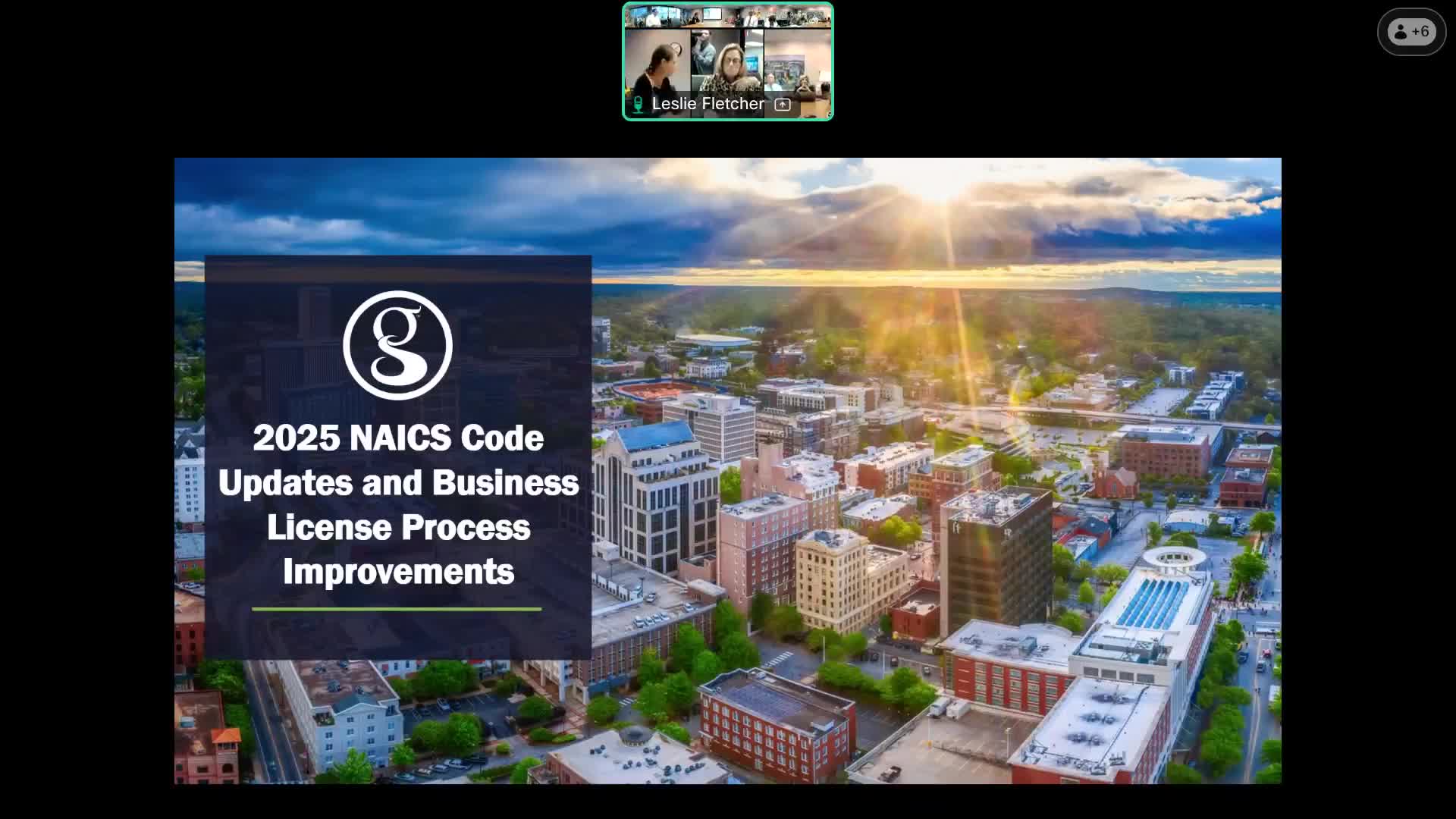Greenville reviews NAICS-driven business license changes; staff proposes nonprofit registration and revenue-neutral options
Get AI-powered insights, summaries, and transcripts
Subscribe
Summary
City staff briefed council on required 2025 NAICS classification changes under South Carolina Act 176 of 2020, potential revenue impacts, and recommended process improvements including annual nonprofit registration and simplification of contractor fee calculations; council asked staff to pursue revenue-neutral scenarios.
Patricia, Greenville City’s chief financial officer, briefed the council on required business-license classification changes tied to the North American Industry Classification System and South Carolina Act 176 of 2020. Patricia told council the new NAICS classifications apply to license years beginning May 2026 and that the changes will reclassify several business groups, affecting how the city calculates license fees.
Patricia said the preliminary analysis identifies about 100 businesses in transportation and warehousing that would move to a higher class and pay higher rates under the new schedule, while roughly 3,500 businesses would move to a lower class. "It equates to about $250,000," Patricia said, describing the approximate net revenue decrease projected if the council accepts the classification changes without rate adjustments.
Why it matters: the state-mandated classification update changes revenue distribution across business types. The city must decide whether to accept the revenue change or adjust municipal rates to maintain revenue neutrality. Patricia said the city could pursue rate adjustments that cascade across classes (a required effect under the standardization act) to preserve net revenue.
Staff proposals and operational changes: Patricia described several recommended process improvements: require exempt or nonprofit entities that do not need a business license to file an annual registration at a nominal fee (the current one-time registration fee is $50; staff proposed a smaller annual fee such as $25 to keep records current), simplify or replace the declining-rate scale for nonresident contractors (currently calculated at $0.30 per $1,000 outside-city gross receipts), and consider background-check requirements for certain personal service businesses at the request of the police department.
Council reaction and direction: council members expressed support for pursuing revenue-neutral options rather than accepting a projected $250,000 revenue decrease. Council members also agreed to move forward with the nonprofit registration proposal and the process change to simplify contractor fee calculations. Council member Dworkin praised staff for minimizing the impact on businesses: "You've worked really hard to make sure that no one got a sticker shock," Dworkin said, referencing staff efforts to avoid large sudden increases for affected businesses. Council discussion emphasized that staff should prepare specific rate-adjustment scenarios and revenue projections for a future council decision.
Formal action: near the end of the item a motion to go into executive session was made and seconded. The transcript records the motion and a second but does not show a formal vote or the session outcome on the record. No formal ordinance or rate change was adopted during the public portion of the meeting.
Next steps: staff will run detailed scenarios to identify how to adjust rates to maintain revenue neutrality if council directs, prepare public notice and outreach for business owners ahead of the May 2026 licensing cycle, and return with proposed ordinance language and revenue estimates for council action.
Ending: Council signaled support for refining options that hold net business-license revenue steady while implementing a nonprofit annual registration and procedural changes to contractor fee calculations; staff will return with modeled scenarios and proposed ordinance language ahead of the 2026 renewal cycle.
